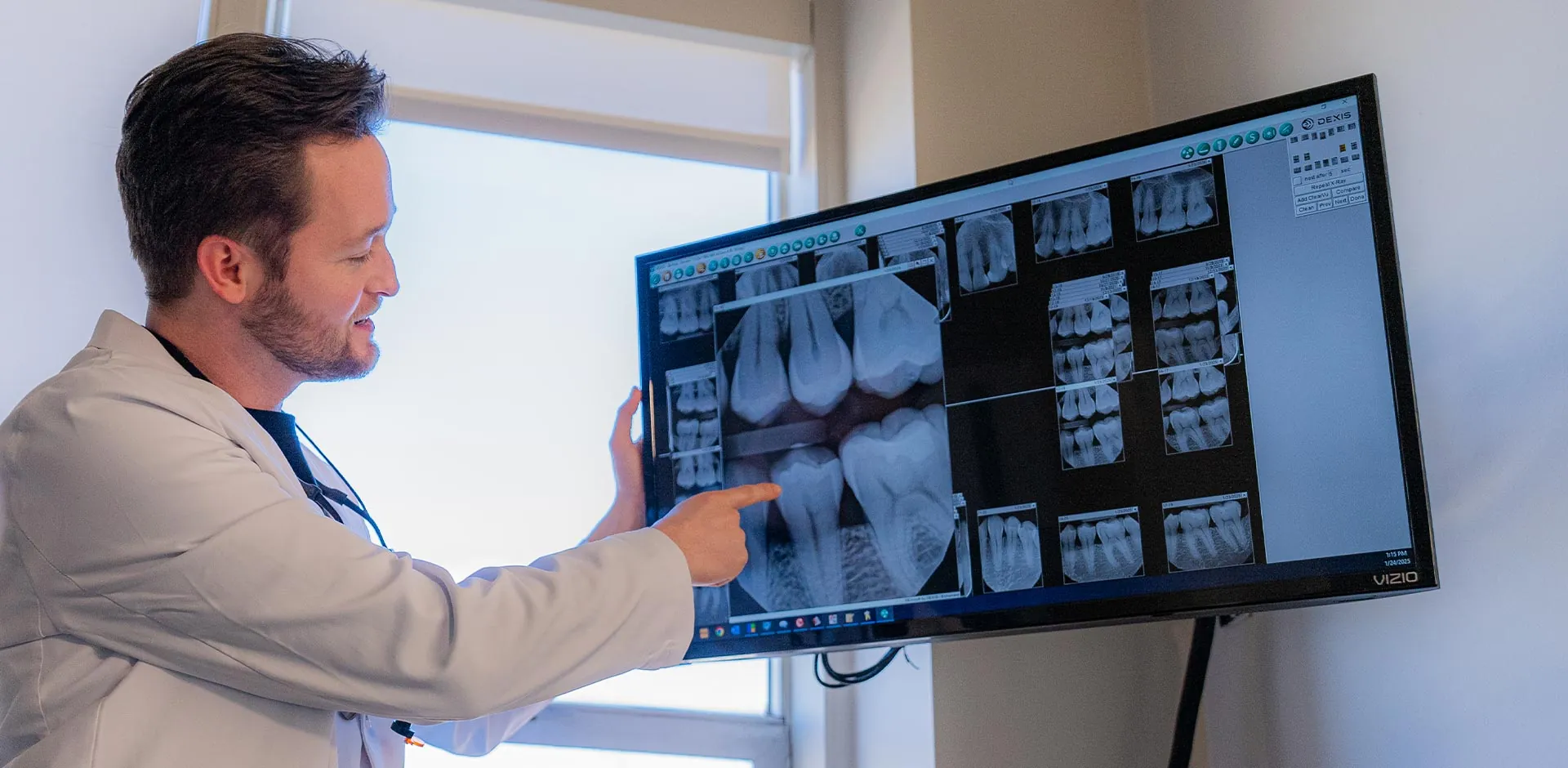At Uptown Family Dental, we take pride in offering end-to-end care; meaning we cater to your needs from start to finish.

Preventive Dentistry
Dental Exams, Preventive Cleanings, Fluoride/Varnish Treatment, Silver Diamine Treatment, Teeth Desensitizing Treatments, Athletic Mouth Guards, Mouth Guards for Bruxism, Treatment for Sleep Apnea
Cosmetic Dentistry
Dental Veneers, Dental Bonding, In-Office Teeth Whitening, Take-Home Teeth Whitening
Periodontal Treatment
Arestin for Periodontitis, Gingivectomies, Chemotherepeutic Rinses, PerioProtect, Laser Disinfection
Restorative Dentistry
Dental Crowns, Dental Bridges, Dental Implants, Removable Dentures, Implant-Supported Dentures
Orthodontics
Clear Aligners
Sleep Dentistry
Sleep Assessments, Oral Appliances
Oral Surgeries
Tooth Extractions, Root Canals, Complete Dental Implant Placement
Sedation Dentistry
Laughing Gas Sedation, Oral Conscious Sedation
Emergency Dentistry
Emergency Appointments, Same-Day Emergency Appointments
Kids' Dentistry
Dentist Appointments for Kids and Teens
We use the highest quality materials and treatment techniques to deliver a luxurious, top-rated dental experience in Portland, OR! Contact us today to schedule your next dental appointment.




